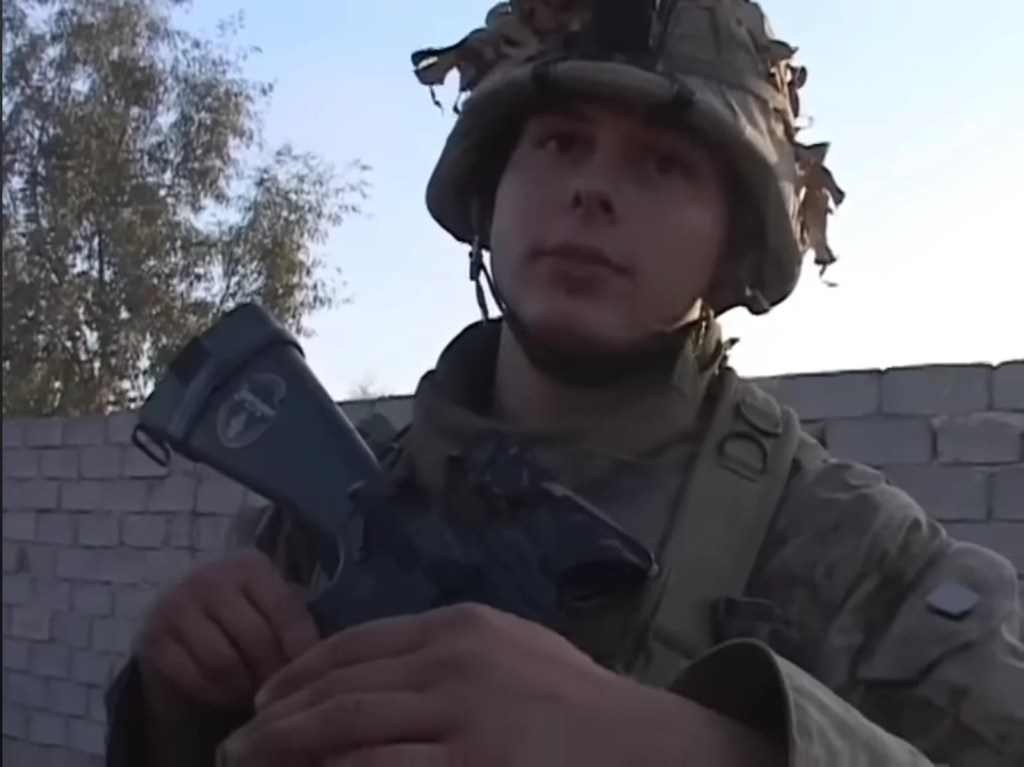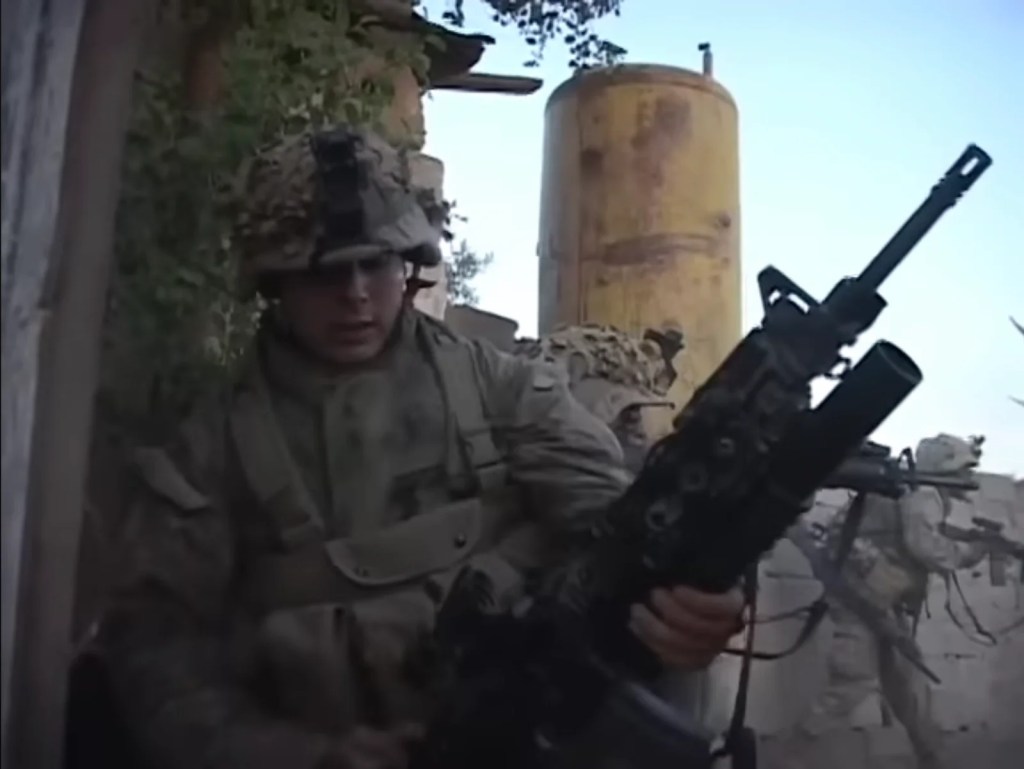
Today, we honor the life and legacy of William Wold, a brave and selfless US Marine who made the ultimate sacrifice for our country.
William Wold Marine served his country with honor and courage, and his story is one that deserves to be told and remembered. As we reflect on the life and death of William Wold, we also want to raise awareness about mental health and the challenges that our servicemen and women face every day.
Join us as we pay tribute to the heroism of William Wold and shed light on the importance of supporting and caring for our military community.

William Wold: A Snapshot of a Courageous Life
William Wold was not just an ordinary Marine. He was a true American hero, whose courage and selflessness in the face of danger exemplified the very best of our military.
Born and raised in a small town, William always had a sense of duty and honor. He knew from a young age that he wanted to serve his country and protect the freedoms we hold dear.
In 2004, William’s deployment to Fallujah, Iraq, would change his life forever.
Fallujah was a warzone, a place where danger lurked around every corner. But William faced it head-on, bravely leading his fellow Marines through the chaotic and treacherous streets. The Battle of Fallujah was one of the bloodiest battles of the Iraq War, and William was right in the thick of it.
Despite the unimaginable horrors he witnessed, William’s courage never wavered.
He risked his own life to save his comrades, demonstrating unwavering loyalty and bravery. He became a source of inspiration for those around him, his unwavering determination in the face of adversity earning him the respect of his fellow Marines.
But the battle didn’t end when William left Fallujah. Like many veterans, he returned home with scars that were not visible to the naked eye. Post-traumatic stress disorder (PTSD) began to take hold of his mind, leaving him haunted by the memories of war.
It was a battle he would fight for the rest of his life.
William’s story serves as a reminder that the cost of war goes beyond the battlefield. It follows our veterans home, affecting their mental health and overall well-being. We must honor William’s sacrifice by raising awareness about the mental health challenges that our servicemen and women face.
In the next sections of this blog post, we will delve deeper into William’s journey and the mental health challenges he encountered. We will remember him as a champion for mental health awareness and explore how we can continue his fight by supporting and caring for our military community.

Combat, PTSD, and Mental Health Challenges: The Battle After War
After his courageous service in the Battle of Fallujah, William Wold faced a new battle, one that was just as relentless and unforgiving as the war zone he had left behind.
Like many veterans, William struggled with the invisible wounds of war, particularly post-traumatic stress disorder (PTSD).
PTSD is a mental health condition that can develop after experiencing or witnessing a traumatic event. The Battle of Fallujah was one such event, leaving a lasting impact on the minds and hearts of those who fought there. William, too, was deeply affected by the horrors he witnessed, and the memories haunted him long after he returned home.
The transition from combat to civilian life is a challenging one for many veterans, and it is during this time that mental health challenges often emerge. The adrenaline rush and the constant state of hyper-vigilance experienced in combat can leave lasting effects on the brain.
Flashbacks, nightmares, and severe anxiety are just a few of the symptoms that can manifest in veterans with PTSD.
For William, these symptoms became a constant battle. Sleepless nights, intrusive thoughts, and a sense of constant danger plagued his daily life. The memories of fallen comrades and the weight of survivor’s guilt were heavy burdens that he carried with him.
But William was not alone in his struggle. There is a growing awareness and understanding of the mental health challenges faced by veterans, and a wealth of resources available to support them.
Therapy and support groups can all play a vital role in helping veterans manage their symptoms and regain a sense of normalcy.
However, it is important for all of us to do our part in supporting our veterans. We must create a culture of understanding and compassion, free from stigma and judgment.
By educating ourselves about the realities of combat and PTSD, we can offer a listening ear and a helping hand to those who have served our country.
In the next section, we will delve deeper into William’s personal journey and the specific challenges he encountered. By understanding his story, we can gain insight into the importance of mental health awareness and the need to care for our military community.
Stay with us as we continue to honor the legacy of William Wold, an American hero who fought not only on the battlefield, but also within his own mind.
William’s Journey: Encountering the Final Enemy
William Wold’s journey was one of bravery and resilience, but it was also a journey that would lead him face-to-face with his own demons.
After returning from the battle of Fallujah, William found himself grappling with post-traumatic stress disorder (PTSD), a battle that would ultimately claim his life.
PTSD is a relentless enemy, silently waging war within the minds of those who have experienced trauma. For William, the memories of the battle were constantly present, invading his thoughts and dreams. The horrors he witnessed haunted him, leaving him trapped in a state of perpetual torment.
In the midst of this internal struggle, William’s outer world began to crumble. He struggled to find his place in a society that seemed oblivious to the sacrifices he had made.
Employment became a challenge as he grappled with the invisible wounds of war. The support he needed seemed out of reach, leaving him feeling isolated and alone.
Despite these overwhelming challenges, William fought on. He sought therapy, connecting with fellow veterans who understood his pain and provided a space for him to share his experiences.
Through therapy, he learned coping mechanisms to manage his symptoms and regain control over his life.
But even with the support he received, the darkness still lingered. William battled with depression and the sense that he was fighting a losing battle. The constant weight of survivor’s guilt compounded his struggles, making each day feel like an uphill climb.
Tragically, William’s journey came to an end as he lost his battle with his invisible enemy. But his story serves as a stark reminder of the urgency of addressing mental health challenges among our servicemen and women.
We cannot afford to lose any more heroes to the silent battles they face within their own minds.

Remembering William Wold: A Champion for Mental Health Awareness
William Wold may no longer be with us, but his impact on mental health awareness among our military community will continue to resonate for years to come.
As we reflect on his life and legacy, it is important to remember that William was not just a Marine who bravely fought in the battle of Fallujah. He was also a champion for mental health, using his own struggles with post-traumatic stress disorder (PTSD) to raise awareness and advocate for support for our veterans.
William understood firsthand the toll that war can take on the mental health of our servicemen and women. He knew the internal battles that they face long after they return from the front lines. That is why he dedicated his life to shedding light on these challenges and ensuring that no veteran felt alone in their struggles.
Although William may no longer be physically present, his legacy lives on in the countless lives he touched and the progress he made through PTSD.
Let us honor his memory by continuing his fight and ensuring that every member of our military community has the support they need to overcome their battles, both seen and unseen.


Continuing His Fight: Promoting Mental Health Among Veterans Today
William Wold’s dedication to mental health awareness among our military community has left an indelible mark on our hearts.
As we honor his life and legacy, it is important that we carry on his fight by promoting mental health among veterans today. The battles they face, both seen and unseen, should never be fought alone.
One of the most crucial ways we can support our veterans is by breaking down the stigma surrounding mental health. Many veterans may feel ashamed or embarrassed to seek help, fearing judgment or misunderstanding. It is our responsibility to create a culture of understanding and compassion, where they feel safe to reach out for the support they deserve.
Educating ourselves about the realities of combat and post-traumatic stress disorder (PTSD) is another important step. By learning about the challenges veterans face, we can better empathize with their struggles and offer them the support they need.
This includes understanding that PTSD is not a sign of weakness, but a natural response to trauma.
Furthermore, we must advocate for improved mental health resources and services for our military community. Many veterans struggle to access the care they require due to limited resources or long wait times. By urging policymakers to prioritize mental health funding and expanding services, we can ensure that every veteran has the opportunity to receive the help they deserve.
Support groups and peer networks can also play a crucial role in promoting mental health among veterans. Connecting with others who have experienced similar challenges can provide a sense of camaraderie and understanding.
By encouraging veterans to seek out these support systems, we can help them feel less alone and empower them on their journey to recovery.
Lastly, we must always be ready to lend a listening ear and a helping hand to our veterans. Sometimes, all it takes is a kind word or a gesture of support to make a difference. By being there for them, we can let our veterans know that they are not alone, and their mental health matters.
